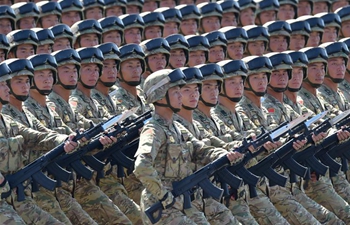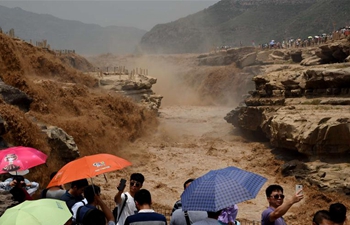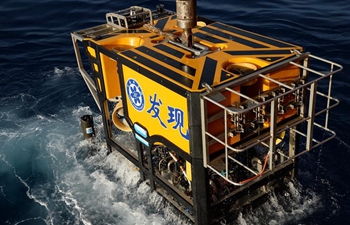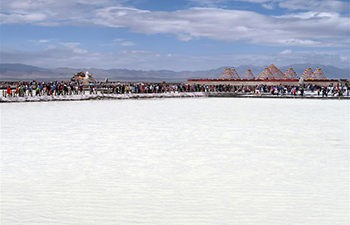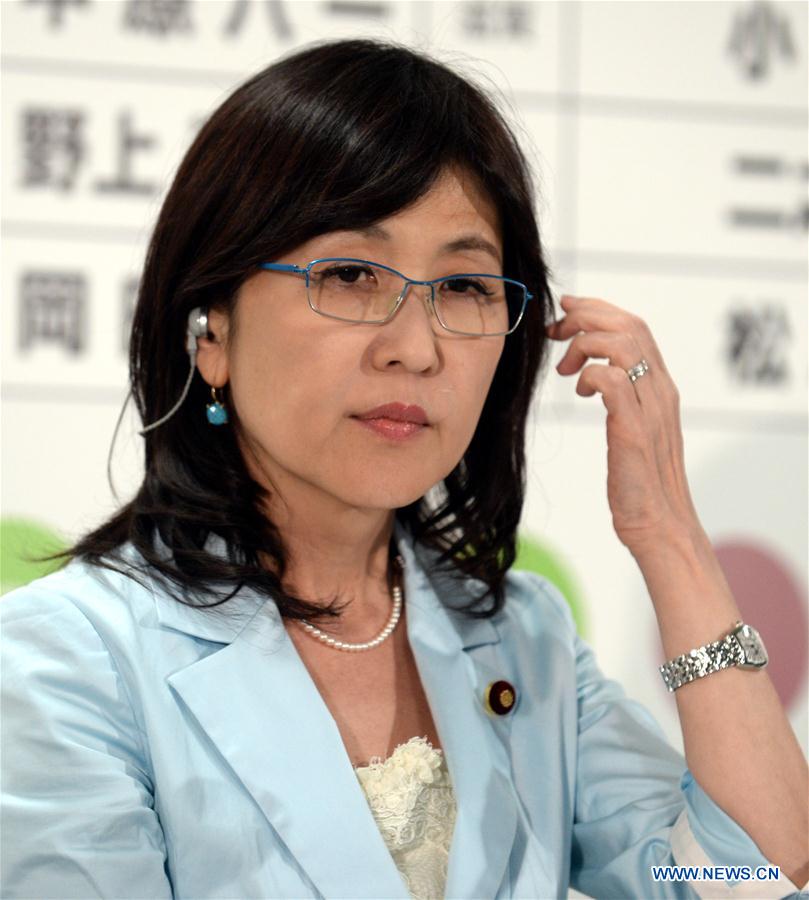
File photo taken on July 10, 2016 shows Tomomi Inada at the headquarters of Liberal Democratic Party in Tokyo, Japan. Japan's Defense Minister Tomomi Inada submitted her resignation on July 28, 2017 to take responsibility for a scandal involving the coverup of controversial logs that recorded the daily activities of Japanese ground troops serving as UN peacekeepers in South Sudan. (Xinhua/Ma Ping)
TOKYO, July 28 (Xinhua) -- Japan's Defense Minister Tomomi Inada submitted her resignation on Friday to take responsibility for a scandal involving the coverup of controversial logs that recorded the daily activities of Japanese ground troops serving as UN peacekeepers in South Sudan.
"I accepted Inada's resignation out of respect for her desire to take responsibility for having caused disruption," Prime Minister Shinzo Abe told reporters, also conceding that he bore the blame for appointing her and apologizing to the public at the same time.
Inada's duties as defense minister will be taken over by Foreign Minister Fumio Kishida in the meantime until the appointment of a new defense chief. Her resignation comes ahead of a planned Cabinet reshuffle by the prime minister next week.
"We cannot allow there to be any gaps in our national security," Abe said with regard to Inada's departure, that will deal a heavy blow to Abe personally as she was a close ally and to the ruling Liberal Democratic Party (LDP) amid historically low public support rates.
Inada herself said the long-running issue pertaining to the alleged coverup of the activity logs could damage the public's trust in the Defense Ministry and the Self-Defense Force (SDF).
"This issue has given the public an impression that could damage their trust in the governance of the Defense Ministry and SDF," Inada told a press conference.
"As the defense minister who directs and supervises the Defense Ministry and SDF, I am acutely aware of my responsibility and I have decided to leave the role," she said.
Sources close to the matter said Friday that amid diminishing public trust in the Defense Ministry and the SDF, Abe is looking to replace Inada with someone with experience.
Itsunori Onodera's name has been floated as her likely successor. Abe first named Itsunori Onodera as defense minister in December 2012.
Inada's resignation follows allegations that senior members of the Defense Ministry and top brass from the Ground Self-Defense Forces (GSDF) had knowledge of controversial mission logs containing the daily activities of troops deployed to South Sudan on a UN peacekeeping mission.
The logs, which showed the security situation where the troops had been deployed was deteriorating, were said by the Defense Ministry to have been discarded by members of the GSDF.
The ministry later said that a digital version of the logs had been found.
Under intense media, public and political scrutiny over the coverup scandal, Inada's resignation to account for the alleged coverup has vehemently been called for by opposition parties, who have long suspected she knew the logs existed all along.
Senior SDF officials allegedly also knew at the time that the GSDF still had the data, and government sources have claimed Inada had herself approved the coverup.
The Defense Ministry initially said in December last year that the mission logs from July detailing the increasingly severe situation for the Japanese troops, had been discarded by GSDF members.
The Defense Ministry in February, in a volte-face, said it had found the logs in digital format on a computer belonging to the Self-Defense Forces Joint Staff Office.
But the ministry, at this juncture, still falsely claimed that the GSDF had discarded the same data.
The descriptions in the controversial logs would have certainly seen the Japanese troops withdrawn from the area in South Sudan as the troops could have become caught up in fighting there, which would not only endanger their lives, but also contravene the nation's pacifist Constitution.
When Japan did finally pull its GSDF troops from the UN mission at the end of May this year, it said it was because the troops' activities had produced notable results during their five-year deployment.
The Japanese government made no mention of the troops being pulled because of the rapidly deteriorating security situation in South Sudan.
Inada has denied the allegations being levied at her and following a probe into the situation by the Defense Ministry, the ministry also denied on Friday that Inada had played a role in concealing the data.
A report by investigators following the probe said that the possibility that Inada heard "some remarks" about the existence of digital data of the GSDF logs in question, during meetings with senior defense personnel and Ground Staff Office members, "could not be ruled out."








